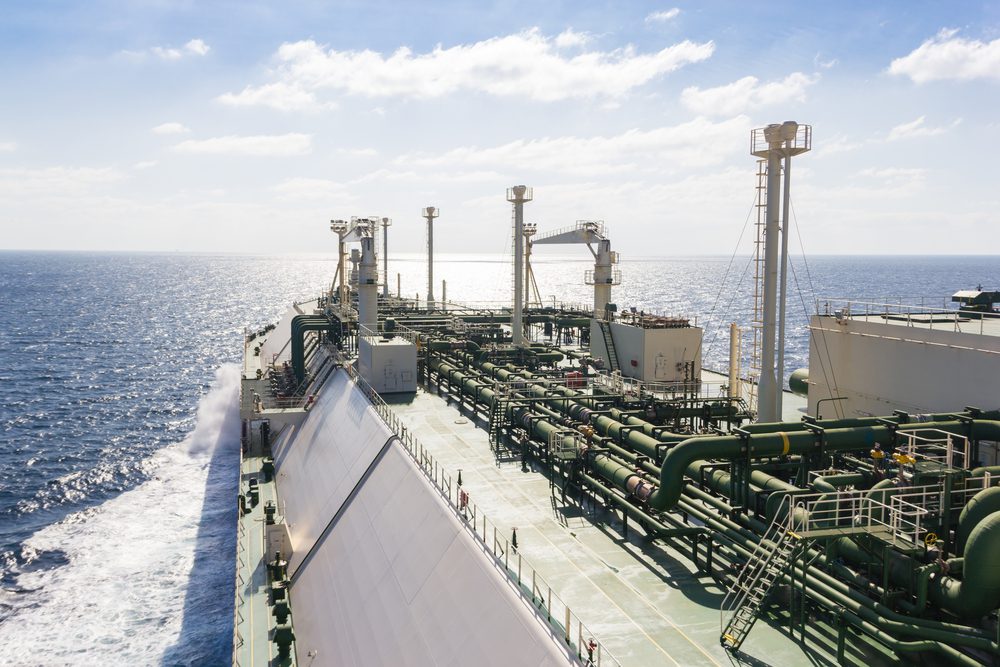Anglo-Eastern has been working to ensure these climate-related considerations are integrated into its decision-making processes across every department in the organisation.
Decarbonisation isn’t just an environmental imperative, it’s also a commercial one, says Niraj Nanda, Chief Commercial Officer at Anglo-Eastern. He highlighted that as regulations evolve and fuel technologies surface, their role is to help clients navigate complexity with confidence.
“Whether it’s emissions trading, fuel selection, or compliance strategy, we’re committed to delivering solutions that are not only sustainable, but also commercially sound.” Carsten Ostenfeldt, Chief Operating Officer at Anglo-Eastern, believes the ocean sustains the shipping industry. “Every drop of fuel, every operational choice, must reflect our responsibility, not just for compliance, but for stewardship.”
In its ESG Report 2024 – Shaping a Sustainable Maritime Future, Anglo-Eastern Shipping stated that, like all sectors, shipping is also facing increasing market and regulatory pressure to decrease its share of carbon emissions. It acknowledged that global response driven by the IMO decarbonisation strategy and regional measures like the EU’s Emission Trading Scheme (ETS) and FuelEU Maritime have set the shipping industry in motion towards a green transition.
Anglo-Eastern Shipping has also recognized that the decarbonisation journey is not easy. Increasing fuel costs, an inadequate inventory of green fuels, and rapid technological developments pose challenges to the industry. Shipping route disruptions due to safety concerns with geopolitical and regulatory uncertainties are likely to influence investment decisions towards areas that focus on decarbonisation. These concerns and risks expose the shipping industry and impact how companies do business.
**Climate-Related Risks**
The Hong Kong-headquartered company has identified short-term, medium- to long-term risks. Anglo-Eastern categorised the risk of increased delays resulting from extreme weather events; and the cost of compliance with CII and EU ETS regulations, and other market-based measures (MBMs), including FuelEU Maritime, IMO market-based measures, and the risk of non-compliance as short-term. It stated that the changing geopolitical situation, resulting in the deviations of ships from using Red Sea routes to using the Cape of Good Hope to reach Europe, has resulted in extra miles and increased emissions in shipping.
Regulatory developments present a significant transitional risk over both the medium and long-term. As such, the company is constantly monitoring and assessing direct and indirect exposure to regulations to ensure its own compliance, and the compliance of its partners and clients. Anglo-Eastern Shipping highlighted other medium to long-term climate risks – increased frequency of extreme weather events, climate-related migration affecting the sourcing of seafarers, and the increasing prevalence of emissions trading schemes. It noted that if these risks are appropriately managed, there is the opportunity for clients to access green financing, remain a preferred service provider in the market, and improve business resilience.
**Addressing the Risks**
Moreover, Anglo-Eastern has been working to ensure these climate-related considerations are integrated into its decision-making processes across every department in the organisation. This involves regular discussions – in terms of ambitions and strategy, as well as internally and externally. The company is committed to substantial resources to assessing the most viable options for vessel and fleet compliance with emissions-related regulations, providing advanced training for seafarers in the operation of vessels equipped with new technologies, and communicating the challenges and opportunities to clients and partners.
Anglo-Eastern applies a continuous process of evaluating the potential impact of climate-related risks at different temperature increases. Its strategy is aligned with the climate-related goals and trajectory set by the IMO and other regional regulators. Furthermore, the company’s operational resilience rests on the ability to adopt and adapt to the technological advancements that require the upskilling and reskilling of the seafarers. Climate risks are integrated into business decision-making alongside risks belonging to traditional categories such as operational, technical, and safety.





